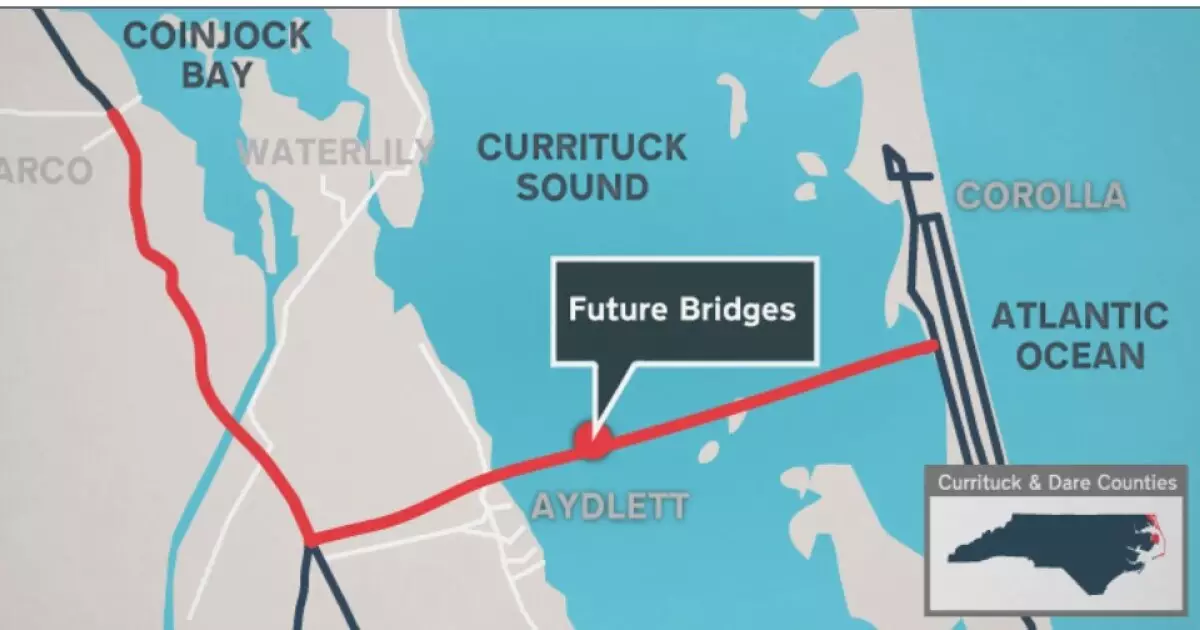North Carolina is poised to undertake its most ambitious transportation initiative yet, a project that reflects both the growing needs of its urban regions and the complexities of modern infrastructure funding. Recent approvals from the Charlotte City Council and the Charlotte Regional Transportation Planning Organization (CRTPO) signal the green light for the North Carolina Department of Transportation (NCDOT) to explore a public-private partnership (P3) for the expansion of the congested Interstate 77 corridor. This project, estimated at $3.7 billion, will aim to widen approximately 11 miles of roadway to ten lanes, adding two express lanes in each direction. As the demand for improved transportation solutions escalates with urban growth, this endeavor raises critical questions about the balancing act of funding, management, and public acceptance.
With a price tag of $3.7 billion, the financial requirements for the I-77 expansion are staggering, and NCDOT officials emphasize that the funds needed to complete the project cannot be sourced solely from the state. Each year of postponed progress is projected to cost North Carolina an additional $100 million, underlining the urgency of moving forward. The preliminary timeline suggests that the state will issue a Request for Qualifications by next August, with firms worldwide expressing interest in this monumental project. However, the state’s financial predicament reveals a significant challenge: how to fund the project effectively while ensuring responsible and transparent management of public funds.
The decision to pursue a P3 model emerges not merely as a financial strategy but also as a means to mitigate the risks associated with the project’s delivery. Research indicates that this public-private framework could save approximately $500 million compared to traditional funding methods. While embracing this option could ultimately relieve some fiscal pressure, it also introduces complexities associated with private sector involvement in public infrastructure.
The I-77 corridor’s history is marred by controversy, particularly concerning the previously launched express toll lanes managed by a Spanish company, Cintra. Public dissatisfaction surrounding this initiative has left a legacy of skepticism about toll road projects in the region. Ed Driggs, a member of the Charlotte City Council, expressed the collective awareness of this sentiment and the challenge it presents. The prior tolling experience has compelled local officials and NCDOT representatives to assure constituents that lessons have been learned and that the forthcoming project will emphasize better contract terms.
Despite the apprehension tied to previous tolling arrangements, the Charlotte City Council voted unanimously to proceed with the P3 arrangement. This decision reflects a pragmatic approach to urban congestion that has been exacerbating over the years as the region experiences rapid growth. The prospect of inaction—a paths that could leave the community without a feasible transport solution—ultimately propelled the council to act, as rising costs tied to stagnation loom large.
In addition to the I-77 project, North Carolina is exploring P3 opportunities for other significant transportation initiatives, such as the Mid-Currituck Bridge project. This proposed $1 billion endeavor seeks to construct a seven-mile toll bridge to enhance access and expedite evacuation along the North Carolina coast. Such forward-thinking strategies are critical as the state grapples with burgeoning urban demands, underscoring the need for innovative solutions to tradition-bound funding models.
Moreover, acknowledging that the costs associated with urban infrastructure projects are often larger than initially anticipated has prompted reflection on sustainable planning practices. Brett Canipe, an NCDOT official, reaffirmed the necessity for transparent communication and stakeholder engagement to navigate the public’s concerns surrounding P3s. His recognition of the rapid escalation of project costs serves as a cautionary reminder of the complexities lawmakers face when balancing growth with responsible fiscal management.
As North Carolina sets its sights on the future of the I-77 corridor and other critical transportation initiatives, the establishment of public-private partnerships emerges as a potential key to unlocking vital infrastructure improvements. However, the journey ahead will require continuous dialogue among stakeholders, transparency in the development process, and a commitment to addressing community concerns. Successfully navigating this balance will be essential to ensuring public support and, ultimately, the successful execution of these ambitious transportation projects, paving the way for a more efficient and responsive transportation network in North Carolina.

